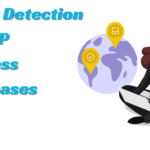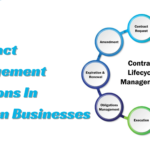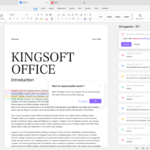Monetizing Dropped Domains: Beyond SEO and Marketing
- 1 5 Ways to Unlock the Potential of Dropped Domains
- 1.1 Track Dropped Domains through an API
- 1.2 Domain Flipping: Unveiling the Art of Resale
- 1.3 Content Monetization: Transforming Web Real Estate into Revenue
- 1.4 Niche eCommerce Platforms: Tailoring Domains for Specific Markets
- 1.5 Domain Leasing: Passive Income Streams from Virtual Real Estate
- 1.6 Development into Web Apps: From Dropped Domains to Functional Platforms
- 2 Bottom Line
In the vast landscape of the internet, there are currently 350.5 million registered domain names. Dropped domains that were once registered but are now available for anyone to claim present a unique opportunity for entrepreneurs and digital enthusiasts.
While the conventional approach to these domains often revolves around search engine optimization (SEO) and marketing strategies, alternative avenues for monetization extend beyond the typical scope.
5 Ways to Unlock the Potential of Dropped Domains
This article explores five distinct ways to unlock the potential of dropped domains and turn them into profitable ventures.
Track Dropped Domains through an API
In the dynamic realm of dropped domains, staying ahead requires real-time insights. Leveraging APIs dedicated to monitoring dropped domains empowers entrepreneurs to track these digital assets as they become available.
By tapping into this technology, individuals gain a competitive edge, receiving notifications on dropped domains. This proactive approach allows for swift decision-making in strategic acquisitions, ensuring that entrepreneurs can seize lucrative opportunities before they slip away. In the fast-paced world of online real estate, utilizing domain tracking APIs becomes vital for those aiming to navigate the ever-changing landscape of dropped domains.
Domain Flipping: Unveiling the Art of Resale
One of the most straightforward methods of monetizing dropped domains is engaging in the art of domain flipping. This involves acquiring undervalued domains and reselling them at a higher price. The key here lies in identifying domains with intrinsic value, whether it’s a memorable name, a brandable quality, or potential keyword relevance.
Once acquired, strategic positioning in domain marketplaces can attract potential buyers seeking specific domain names. Successful domain flipping demands a keen understanding of market trends, emerging industries, and the art of negotiation.
Content Monetization: Transforming Web Real Estate into Revenue
Rather than relying solely on SEO and marketing, dropped domains can be repurposed for content monetization. By developing engaging and relevant content on the acquired domain, individuals can leverage various monetization methods.
This may include affiliate marketing, sponsored content, or even the creation of premium content accessible through subscriptions. The key is to align the content with the domain’s theme and audience, creating a valuable online resource that attracts traffic and, subsequently, revenue through diverse channels.
Niche eCommerce Platforms: Tailoring Domains for Specific Markets
Dropped domains can be seen as blank canvases waiting to be transformed into niche eCommerce platforms. Instead of adhering strictly to SEO and marketing principles, entrepreneurs can tailor these domains to specific markets and audiences.
For instance, a domain related to vintage cameras can become an eCommerce hub for collectors and enthusiasts. The focus here is on creating a specialized online space that caters to a specific niche, attracting a dedicated customer base willing to engage with the products or services offered.
Domain Leasing: Passive Income Streams from Virtual Real Estate
For those who prefer a more hands-off approach, domain leasing offers a viable option for generating passive income from dropped domains. By leasing out the domain to businesses or individuals, domain owners can receive regular payments without the day-to-day responsibilities of managing the associated website.
This approach requires effective negotiation skills and the ability to assess the potential value the domain holds for potential lessees. It’s a symbiotic relationship where the lessee gains access to a valuable domain, while the owner enjoys a steady income stream.
Development into Web Apps: From Dropped Domains to Functional Platforms
Taking dropped domains beyond the realms of traditional SEO and marketing involves transforming them into functional web applications. This can range from developing tools, services, or interactive platforms that cater to specific user needs.
For instance, a domain related to fitness could evolve into a workout-tracking app, offering users a unique and valuable experience. The success of this approach hinges on identifying a gap in the market, understanding user behavior, and developing a web app that addresses a genuine need.
Bottom Line
The world of dropped domains offers a spectrum of opportunities beyond the conventional realms of SEO and marketing. Whether through domain flipping, content monetization, niche eCommerce platforms, domain leasing, or the development of web apps, individuals can unlock the latent potential within these virtual assets. Each approach requires unique skills, ranging from market analysis and negotiation to content creation and app development.
As the digital landscape continues to evolve, so too do the possibilities for monetizing dropped domains, making them an intriguing space for entrepreneurial exploration. By venturing beyond traditional strategies, individuals can carve a niche for themselves in the ever-expanding virtual real estate of the internet.



















